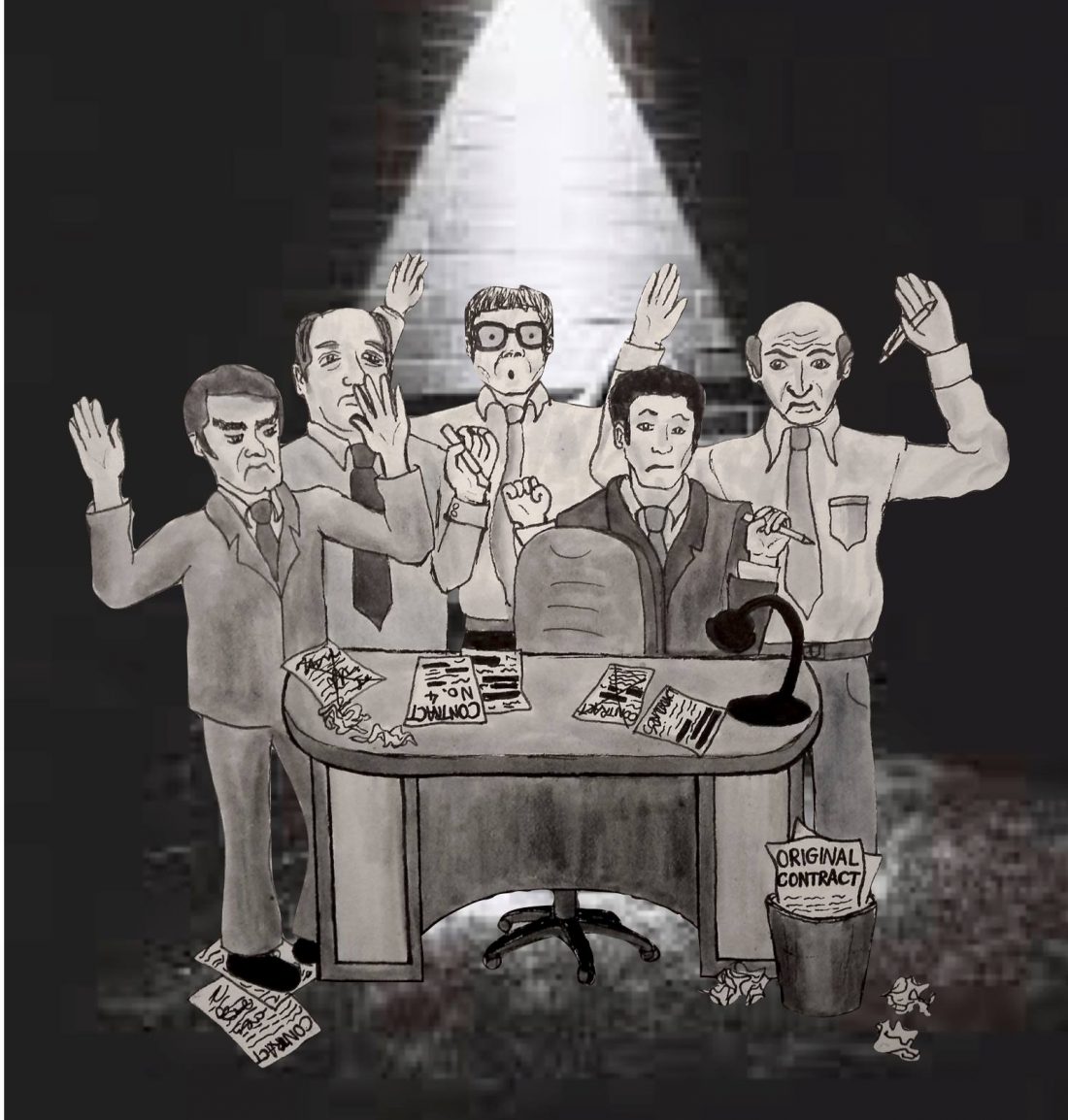Earlier this year, an international student and former vice-warden of UCL accommodation shared her story with The Cheese Grater. Her tale exposes a system that cares little for international students other than the money they bring in.
It is a story of bullying, dishonesty, and mistreatment by senior staff.
In our resulting investigation, The Cheese Grater has discovered the university may have broken employment laws for several years, and carelessly risked the immigration status of dozens of their employees.
New Contracts
After several months of working for UCL last year, Amanda (not her real name) was informed that her contract would need to be amended.
Vice-wardens are graduate students who receive a free room in halls in exchange for being ‘on call’ so that they can help residents with any problems they may have. At UCL, they do not receive payment for their work.
Until then, Amanda, as an international student who is unable to access student loans, worked twenty hours a week in Union bars, which is the maximum allowed during term time on a Tier 4 student visa. With the new contract, Amanda was unable to take on any work besides being a vice-warden.
Senior UCL staff gave conflicting reasons for the change in the following months. Amanda, understandably confused and distressed about being unable to earn money, later filed an official complaint with UCL.
UCL Claimed There Was A Change in Law
In response to the formal complaint, UCL Registrar Wendy Appleby wrote: ‘In November 2016, Tier 4 vice-wardens were advised that the change in employment law meant that they could not have employment other than their Vice Warden role.’
When asked by The Cheese Grater about the change in law, the university backtracked, stating that prior to 2016, ‘UCL hadn’t identified whether Vice Wardens were volunteers or voluntary workers and there had been no formal record keeping of the hours worked.’
A barrister specialising in immigration law told CG that the twenty-hour weekly limit on employment during term time for international students (including both paid and unpaid employment) had been in place since 2009 – the year the Tier 4 visa was introduced.
UCL now officially classified the position as voluntary work. In other words, the hours worked by international vice-wardens counted towards their permitted 20 hours.
No law had changed. Rather, UCL had risked the immigration status of dozens of its international student employees by failing to make this distinction clear for several years.
Legal Advice Mix Up
Upon discovering she would have to quit her other work, Amanda had initially sought clarification from Joanna Page, UCL’s Head of Immigration Advice and Compliance.
Page advised her, ‘you will need to put aside 5 hours per week to carry out your Vice Warden duties and so you will be able to work up to 15 hours per week outside of these duties.’
A few weeks later, her supervisor Mitesh Vagadia told her that she would, in fact, have to set aside five hours per shift as vice-warden, leaving her a mere five hours available for her to take on paid work each week.
UCL now says that this confusion was because their legal advice had changed within those few weeks.
A spokesperson told CG that ‘the quota of 5 hours per shift was introduced to remove the risk of vice-wardens on Tier 4 visas working [over 20 hours] at UCL and at the same time ensure we could continue to appoint Tier 4 visa holders and meet the full requirements of the role.’
This response makes clear UCL’s priorities: maintaining their ability to hire international students as vice-wardens over the welfare of the individuals they employ.
Amanda’s timesheets show that the most she ever worked in a night was 30 minutes.
LSE Take A Different Approach
LSE treat their sub-wardens (equivalent to UCL’s vice-wardens) very differently. A spokesperson told CG that their sub-wardens ‘are paid appointments and they are contracted to work seven hours per week.’ LSE’s sub-wardens also receive free accommodation.
UCL claims that increased scrutiny of visa regulations on academic institutions in the last year has resulted in chances to vice-wardens’ contracts. LSE told CG that they have counted the hours their sub-wardens work for several years.
UCL added that ‘the review provided better clarification of the immigration and employment law position.’
Threats of Deportation
Amanda’s story is not an isolated case.
Katie (also not her real name), a student still working as a vice-warden, undertook paid work with her academic department but quit after the changes to her contract, fearful of endangering her visa status. This fear was sparked by the tone of the meeting in which all of UCL’s vice-wardens were initially told about the changes to their contracts.
Katie and Amanda both told The Cheese Grater that a member of UCL staff raised the possibility of deportation for non-compliance with Tier 4 visa regulations at the meeting.
Amanda said, ‘the moment you use that word to an international student … you’re shutting down my sense of reasoning. You can’t say anything.’
Page declined to comment other than to reiterate that ‘failure to adhere to these imposed conditions [of working hours regulations] puts the visa-holder’s immigration status at risk.’
In response to the formal complaint by Amanda (in which she argued that her finances, studies and mental health had suffered as a result of these abrupt changes), Appleby wrote, ‘we do recognise that this change had a disproportionate impact on you’ but ‘we do not consider that financial compensation would be appropriate.’
Appleby’s response illustrates UCL’s relationship with international students. They are a cash cow for UCL — providing the university with half of its tuition fee income — but when it comes to their safeguarding responsibilities, the university shows little interest.
Sasha Baker
Artwork by Anna Saunders
A version of this article appeared in CG Issue 61.

